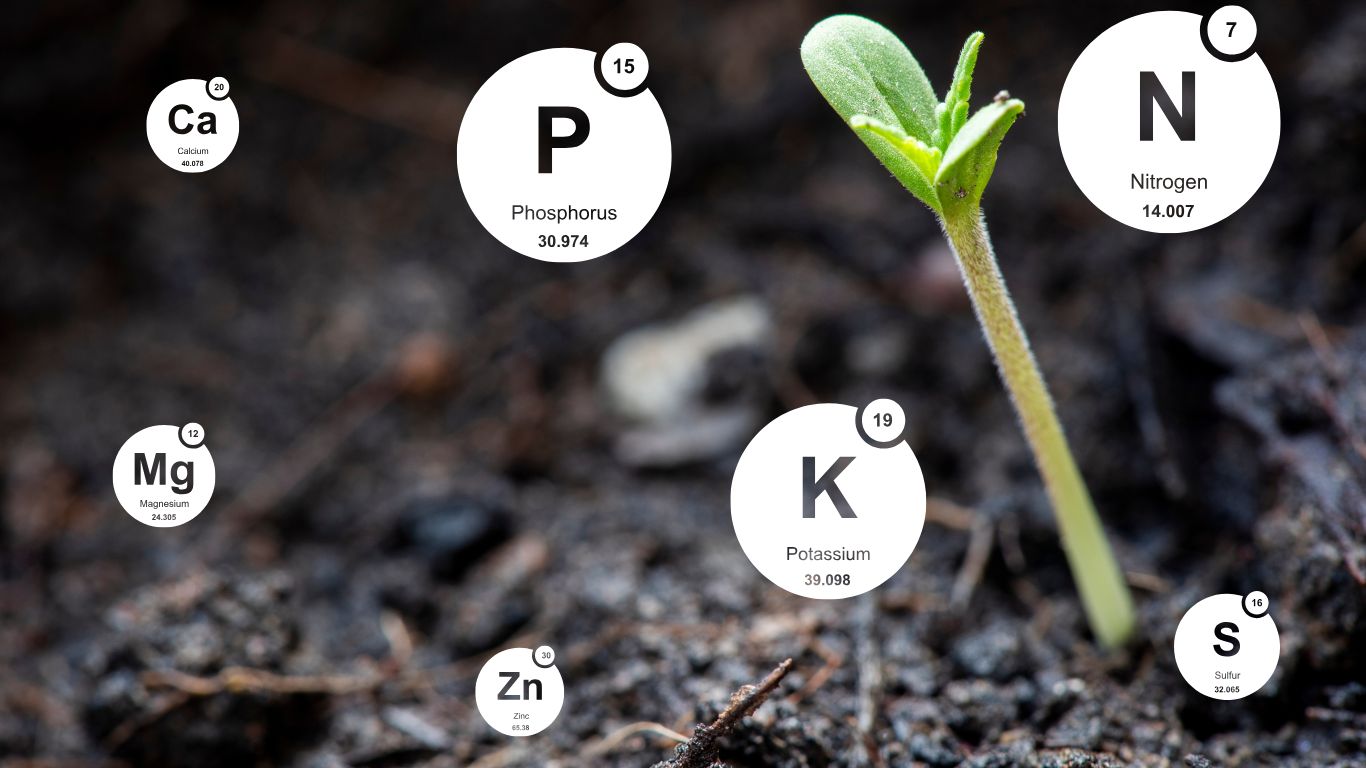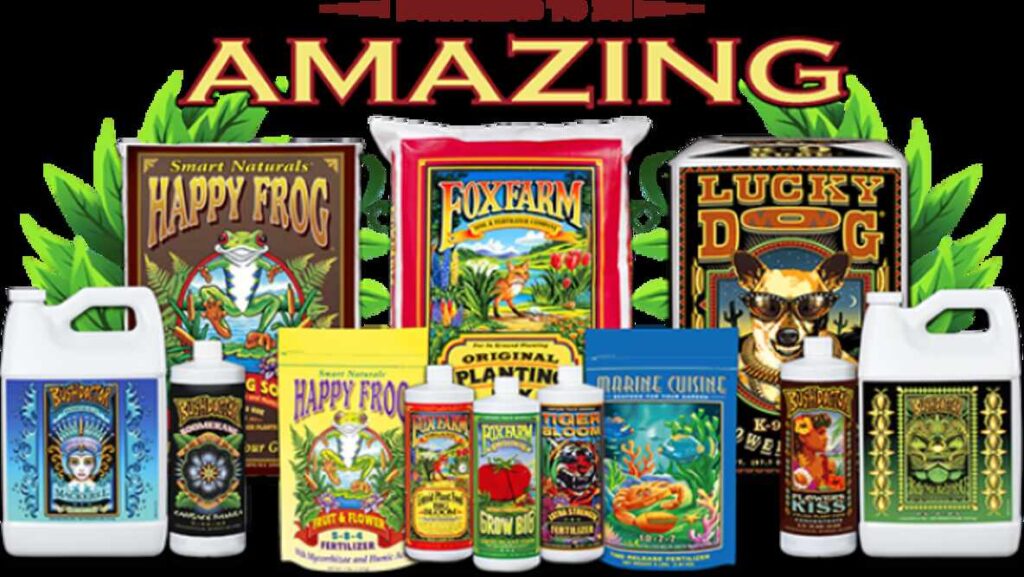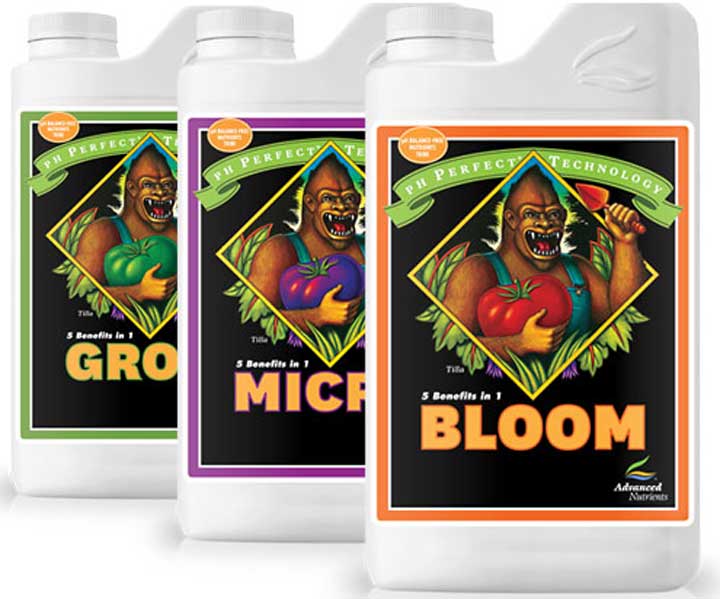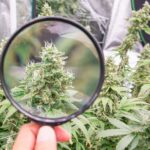The Best Fluffy Pancakes recipe you will fall in love with. Full of tips and tricks to help you make the best pancakes.

The Best Nutrients for Cannabis Plants
If you want to grow some top-tier cannabis, you’ve got to start with the basics. And by basics, I mean nutrients! Just like any other plants, cannabis needs the right fuel to thrive and deliver those frosty buds you’re aiming for. Whether you’re a first-timer or a seasoned grower looking to fine-tune your grow, the nutrients you choose can make or break your grow game. So let’s dive into it – here’s everything you need to know about the best nutrients for cannabis plants.
Why Nutrients Are Important for Cannabis Plants
What Are Nutrients and Their Role in Cannabis Growth
Think of nutrients like a balanced diet for your cannabis plants. There are macronutrients and micronutrients, all of which play a specific role in your plant’s growth. Macronutrients (like nitrogen, phosphorus, and potassium) are the big players, while micronutrients are like the seasoning, adding those extra little bits your weed needs to thrive. Without these essential nutrients, your plant wouldn’t just grow slow—it might not grow at all. You’d end up with weak stems, yellow leaves, and buds that aren’t worth smoking.
How Nutrients Affect Yield, Potency, and Health
Want big, dense buds? Nutrients are a huge part of that. Not only do they help with plant structure and growth, but they also affect your yield and potency. Good nutrients encourage more resin production, better terpene profiles (that’s the smell and taste), and overall plant health. The right balance gives you more buds, bigger trichomes, and ultimately, stronger effects when it’s time to harvest.
Signs of Nutrient Deficiency in Cannabis Plants
Your plant can’t exactly text you when it’s hungry, but it sure does give signs! Yellowing leaves, weak growth, purple stems—these are just a few indicators that your cannabis plant might be missing some key nutrients. Pay attention to what your plant is telling you, and always be ready to adjust your feeding schedule or mix if you notice things looking off.
Key Nutrients for Cannabis Growth
Macronutrients: Nitrogen, Phosphorus, and Potassium
These are the big three: N-P-K. Nitrogen is essential for leaf growth, phosphorus boosts root and flower development, and potassium helps your plant’s overall health and metabolism. During the vegetative stage, you want more nitrogen, and during flowering, you’ll shift to higher phosphorus and potassium. It’s all about balance, man.
Secondary Nutrients: Calcium, Magnesium, and Sulfur
Secondary nutrients are like the backup singers in a band—not always in the spotlight, but still essential. Calcium strengthens cell walls, magnesium is key for photosynthesis, and sulfur helps build amino acids. If your leaves are curling or showing weird spots, you might be lacking in these. Adding some Cal-Mag (calcium and magnesium) supplement can often fix these issues right up.
Micronutrients: Iron, Zinc, and Other Trace Elements
Even though your plant doesn’t need as much of these, micronutrients like iron and zinc are still super important. They help with things like chlorophyll production and enzyme function. It’s easy to overlook them, but a well-rounded nutrient mix will have everything your plants need in trace amounts.
Best Nutrient Solutions for Different Stages of Cannabis Growth
Nutrients for the Vegetative Stage
During the veg stage, your plant is all about building strong roots and lush leaves, so it craves nitrogen. Look for a nutrient mix with a higher N value in the N-P-K ratio. You want your plant to be growing tall and strong, setting itself up for a banger flowering phase.
Nutrients for the Flowering Stage
Once your plant starts to flower, it’s time to switch gears. Phosphorus and potassium are now the stars of the show. This is when your plant focuses on bud production, and it needs all the help it can get to bulk those buds up. Using bloom nutrients with a high P and K ratio is key.
Adjusting Nutrient Levels During Different Growth Phases
As your plant moves through different stages, you’ll need to adjust your nutrient feeding schedule. Early in veg, you can hit it with more nitrogen, but as you approach flowering, start dialing that back and boost the phosphorus and potassium. It’s all about keeping up with the plant’s needs as it evolves.
Types of Nutrients: Organic vs Synthetic
Pros and Cons of Organic Nutrients
Organic nutrients come from natural sources like compost, guano, or fish emulsion. The pros? It’s more environmentally friendly, and many growers swear it gives a more natural flavor to their buds. The downside is that organic nutrients can take longer to break down and be absorbed by the plant.
Pros and Cons of Synthetic Nutrients
Synthetic nutrients are lab-made and work faster. You can give your plant exactly what it needs in precise amounts. The trade-off is that they can be a bit harsh on the environment if not used properly. Plus, overusing synthetic nutrients can lead to nutrient buildup and burning your plants.
Which Type of Nutrient is Best for Different Growers
For beginners, synthetic nutrients might be easier to manage since they give quick results and are more predictable. If you’re an experienced grower looking for premium taste and quality, you might want to go organic. I prefer synthetic for the control, but honestly, it’s up to your personal style.
Nutrient Delivery Methods
Soil vs Hydroponic Nutrients
Growing in soil and growing hydroponically are two different beasts. In soil, nutrients break down slowly, so you need to be careful not to overfeed. In hydro, the nutrients go directly into the water, making it easier to control what your plant is getting at all times.
How to Feed Nutrients in a Hydroponic Setup
In hydroponic systems, you mix your nutrients into the water, and the roots absorb them directly. You need to make sure your nutrient solution is well-balanced, and don’t forget to adjust the pH! Hydro setups are sensitive, and you don’t want to throw off your plant’s ability to absorb all that good stuff.
How to Adjust pH Levels for Optimal Nutrient Uptake
Your pH levels need to be in the right range for your plant to absorb nutrients properly. In soil, aim for a pH between 6.0 and 7.0. In hydro, you want it a bit lower—between 5.5 and 6.5. Invest in a good pH meter to keep your plants happy and well-fed.
Common Nutrient Issues and How to Fix Them
Nutrient Burn and How to Avoid It
Nutrient burn is when you’ve overfed your plants, and the leaves start getting crispy at the edges. It’s basically your plant telling you, “Enough already!” The fix is simple: flush your plants with plain water and dial back the nutrients.
How to Deal with Nutrient Lockout
Nutrient lockout happens when your plant can’t absorb the nutrients you’re giving it, often due to pH imbalances or salt buildup. Flushing your plants and checking your pH can solve this problem. Keep an eye on your plant’s response and adjust accordingly.
Overfeeding and Underfeeding Cannabis Plants
Overfeeding can cause nutrient burn, while underfeeding can stunt your plant’s growth. Both can be avoided by following a proper feeding schedule and paying close attention to your plant’s needs. Less is sometimes more, especially if your plant is sensitive to nutrient changes.
The Best Nutrient Brands for Cannabis Plants
Top Organic Nutrient Brands for Cannabis
If you’re going the organic route, you can’t go wrong with brands like Fox Farm, Earth Juice, or General Organics. They’re all solid choices that give your plants the natural boost they need.

Top Synthetic Nutrient Brands for Cannabis
On the synthetic side, Advanced Nutrients, General Hydroponics, and Canna are the go-to brands for a reason. They’re reliable, easy to use, and produce consistent results.

Recommended Nutrient Formulas for Beginner and Experienced Growers
For beginners, I’d recommend sticking with a basic 3-part nutrient system like the one from General Hydroponics. It’s straightforward and easy to follow. Experienced growers might want to experiment with more advanced formulas or add in supplements like bloom boosters and enhancers.
Tips for Maximizing Nutrient Efficiency
How to Properly Measure and Mix Nutrients
Always follow the instructions on the nutrient bottle. Measure carefully using a syringe or measuring cup, and never just eyeball it. Trust me, it’s worth taking the extra time to get it right.
Using Additives and Boosters to Enhance Plant Growth
Additives like silica, enzymes, and beneficial bacteria can take your grow to the next level. They help strengthen your plants and improve nutrient uptake. Just don’t go overboard—less is more when it comes to additives.
Best Practices for Nutrient Feeding Schedules
Stick to a feeding schedule and keep track of what your plants are getting. Alternate between feeding nutrients and plain water to avoid nutrient buildup. Listen to your plants—they’ll let you know if they need more or less.
FAQ:
What nutrients are best for cannabis plants?
Cannabis plants need a balanced mix of macronutrients (nitrogen, phosphorus, potassium) and micronutrients like calcium and magnesium for optimal growth.
What is the best NPK ratio for cannabis plants?
The ideal NPK ratio changes by growth stage. A higher nitrogen mix for veg (like 3-1-2) and more phosphorus and potassium for bloom (like 1-3-2).
Can I use regular plant fertilizer for cannabis?
You can, but cannabis-specific nutrients are better tailored to the plant’s unique needs, especially during flowering.
How often should I feed my cannabis plants nutrients?
Feed nutrients every other watering or as needed, depending on the plant’s response and growth stage.
What happens if you give cannabis plants too many nutrients?
Overfeeding causes nutrient burn, where leaves turn yellow or brown and crisp at the edges. Flushing the plant with water can fix this. Feeding your cannabis plants the right nutrients is a game changer when it comes to growing high-quality weed. Whether you’re sticking to soil or going hydro, choosing the right nutrients and adjusting them during each growth stage is essential to getting those big, sticky buds. Remember, it’s all about balance! Take your time, pay attention to your plants, and you’ll be harvesting some amazing cannabis in no time.




